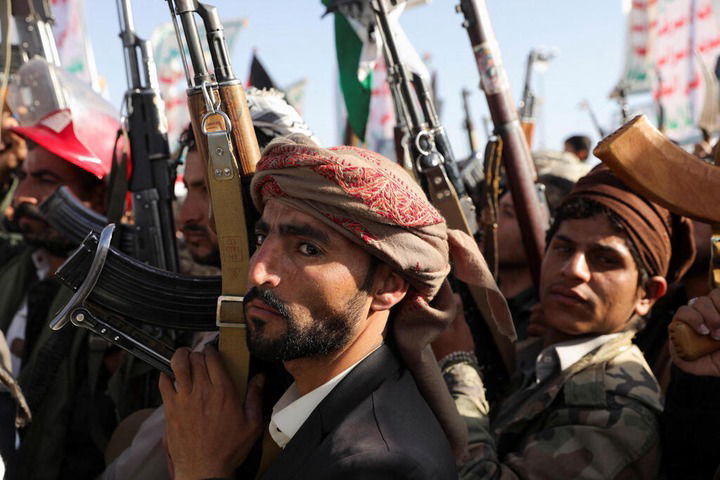The Houthis Cannot Be Deterred, Says Dr. Yoel Guzansky As It Defies The US And Challenges The World

According to Ynet, Yemen's Houthi militia, backed by Iran, has escalated its global impact through missile and drone strikes, seizing civilian vessels, and crippling Red Sea trade.
Despite U.S.-led strikes and Israeli counterattacks, the group’s technological advancements continue to alarm international security analysts.A U.S. Navy F/A-18 fighter jet was mistakenly downed by friendly fire over the Red Sea during operations against Houthi positions in Yemen. While the Pentagon has not confirmed if the incident was linked to Houthi aggression, the rebels claimed responsibility.“The Houthis cannot be deterred,” remarked Dr. Yoel Guzansky from Israel’s Institute for National Security Studies. This sentiment reflects their resilience despite relentless Saudi airstrikes and U.S. coalitions targeting their assets.
Their latest missile attack reached Israel, striking civilian areas and exposing weaknesses in defense systems.Houthi forces have evolved from a localized militia to a regional menace capable of targeting distant states like Israel. U.S. defense official William LaPlante expressed “shock” at their advanced weaponry, much of which reportedly comes from Iran and possibly Russia.The Biden administration’s approach, including the 2022 removal of the Houthis from the Foreign Terrorist Organization (FTO) list, has faced criticism for failing to curb their aggression. However, analysts anticipate a firmer stance under President-elect Donald Trump, who may reinstate the FTO designation and escalate military efforts against the group.
As tensions surge, experts argue that only coordinated U.S.-Israeli operations targeting Houthi leadership and military capabilities can restore stability to the region. Prime Minister Benjamin Netanyahu affirmed Israel’s commitment, declaring, “Even if it takes time, the result will be the same as with other terrorist arms.”The Houthis’ defiance highlights a broader challenge to global stability, leaving the international community grappling with a formidable and unyielding adversary.